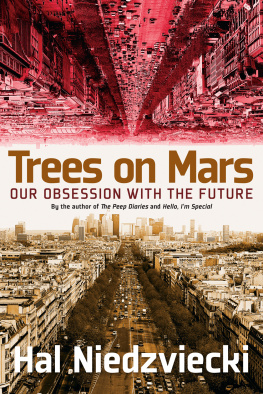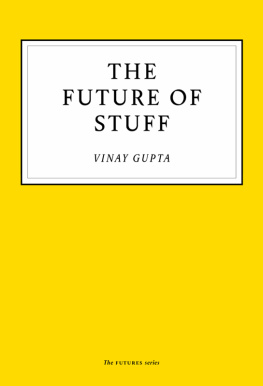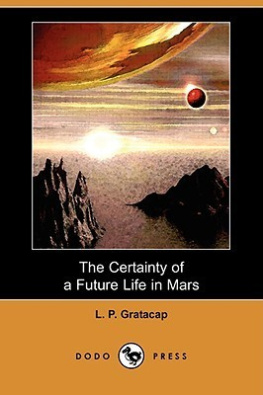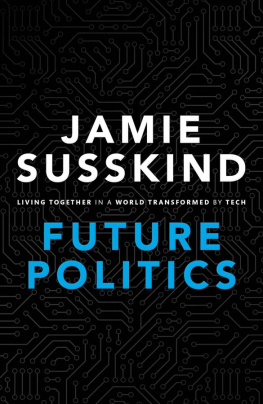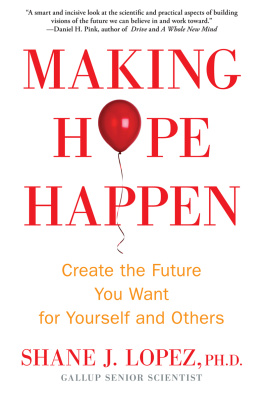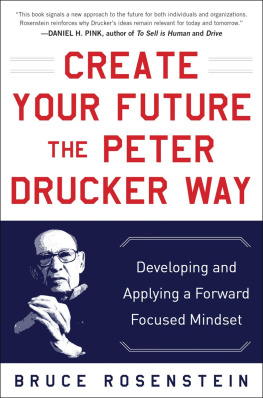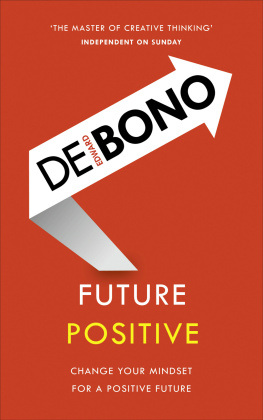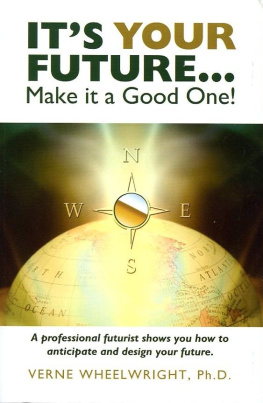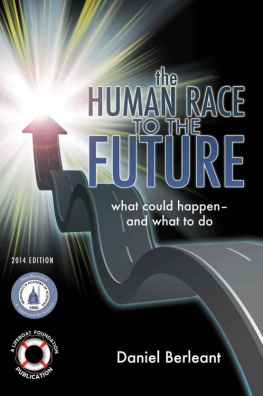INTRODUCTION
A Winning Future
The first step in winning the future is encouraging American innovation.
Over the last decade or so, securing morphed into winning and statements that once seemed at least a touch hyperbolic have become utterly the norm. Say that a main priority for a city, region, country, or even the entire human race is to be first to secure, win, or own the future, and people from widely different ideological and cultural backgrounds are likely to nod their heads in auto-pilot agreement. After President Obama used the words innovate or innovation more than ten times in his January 2011 State of the Union address, a Time magazine article noted that on this issue, at least, Republicans seem in sync.... Everyone wants innovation and agrees that it is the key to Americas future. We have reached, as of 2011 or more likely some years before, a rare point of seemingly incontrovertible concord: there is a race to the future, and we must run it.
But do we know what, exactly, weve agreed to? The more we accept and advance what has become, over the last decade, an oft-repeated mantra around the world, the more we are fundamentally redefining humanity. Consider what these now de facto statements regarding the race to the future take as a given. First, theres the notion that tomorrow is now almost entirely under human control. As such, the future is no longer a collective, all-encompassing unknowable that governs the fate of all creatures on Earth; instead its a looming time to come that we can moderate more or less at will.
Furthermore, we have somehow come to agree that this shapeable, attainable future is something we have to compete with each other to own. No longer to be considered as simply part of the endless weave of time, the future has been recast as a finite resource: there is only so much future to go around. In this new, now seemingly uncontroversial version of the future, nations, communities, and individuals all battle each other for prime territory in the time to come.
As well explore in this book, these two now-default notions represent a very different understanding of the universe than the one that dominated humanoid thinking for most of the time bipeds have walked the planet. Although often couched, as President Obamas words certainly were, in the quotidian of the commercial enterprise, what were really dealing with here is a vast systemic shift in our collective consciousness. This is an entirely new way of apprehending our place in the cosmos.
How and why did we agree to embrace the notion that we are all tiny little gods, diminutive Olympians slugging it out to win the right to monopolize the future? How did we come to agree on the present as an impediment, a piddling problem to be solved on the way to the future? These are hard questions to answer, largely because we arent really aware that we have embraced this shift and all that it implies. Im hardly the first person to note that technological innovation has displaced both pop culture fantasy and religious conviction as the primary site of our projections. CNN segments on people camping out overnight to be first to acquire the latest iPhone remind us just how anxiously we now await the arrival of new totems of the future. They adjoin and accompany Wired cover stories trumpeting the personal drone revolution and Fast Company profiles of twenty-four-year-old multimillionaire app inventors. But despite the mainstream prominence techno-disruptive-futurism receives, there is little to no coverage that puts these phenomena in context. Nobody seems to mention how utterly different this approach to life is. Nobody asks how and when and why we reframed the future as something individuals can and should own and then placed the attainment of the future on a pedestal, effectively telling each other: look to this for all that matters.
Still, as well see in the coming chapters, educational institutions at all levels now advance this perspective; bureaucracies and politicians now make decisions that privilege this ideology; and our pop culture and media now relentlessly depict the future as a winnable, contested space. All the same, nobody actually comes out and says exactly what this means. Governments arent sending official notices advising that we should stop ordering our lives around the past (doing things the way theyve always been done), or the present (adapting to circumstances as they arrive), and start focusing exclusively on getting to the future first. An all-encompassing ideology is washing over us like a tidal wave, and were pretty much treating it like a fun-loving must-see blockbuster consumer culture spectaclethe next Star WarsMy Little Ponygoji berrycraft beer craze, the first Jaws.
A new era emerges with the arrival of a dogma that is so compelling and overwhelming that human life and thought shapes itself to that ideology. Its happened before with various religious, political, and economic systems, and it is happening now. In this book, I will argue that an ideology has arrived and the systemic shaping of the social order that defines our lives is in progress. But, at the same time, unusually for such a large shift in the collective belief structure, the move to the future has been barely noticed; the tectonic plates ever so slowly bumped up against each other deep under the Astroturf of contemporary culture until, all of a sudden, the landscape around us changed so dramatically it was like it hadnt changed at all. Suddenly everything is different, every single one of us is affected, and yet the world looks (mostly) the same and its hard to pinpoint exactly what changed or why.
Still, this is no short-lived fad. The rise of future as organizing principle is having deep, lasting effects on our families, our communities and our mental and physical environments. This new faith in disruptive futurism is an ideology and, increasingly, a governing system that, at its core, rejects stability, continuity, even community; in many ways, it is a complete restating of what we should desire and aspire to, what we should believe in and live for. As a result, it would be hard to underestimate its impact, despite its surreptitious arrival in the form of a kind of benevolent mission creep. Beset with an ideological pressure neatly dovetailing with addictive, increasingly personalized technologies that reach deeper and deeper into daily life, we find ourselves enabled in new ways, and yet all too familiarly struggling to live up to expectations. How can you change the world today? We are at least as much terrorized as we are empowered by this now-omnipresent question. As well see, this is not some so-called future shock to be met by leading the populace into awareness of the potentiality of a new era. We are all too aware of our supposed potential as change agents. But despite what were being told and shown and taught, we are not instinctively able to embrace ongoing, constant flux in pursuit of future. As this book proceeds, it will become increasingly evident that though we are superficially eager to adopt the trappings of the superhero cum technologist, we remain culturally and psychologically ill-equipped to deal with our new role. There is surprisingly little in the fourand-a-half million or so years humanoids have spent on Earth that has prepared us to deal with the increasingly globalized presumption that each and every one of us should be running a race to the future.
We sense that some bad or at least some very difficult and confusing thing is happening. But we struggle to pinpoint its source, like the occupants of a house beset by a rotten smell emanating from somewhere under the floorboards. Theres nothing to post to Instagram, upload to YouTube, share on Facebook. The tidal wave came and went so fast, we didnt even know it hit us. All the same, it reordered and continues to reorder. Some are even now being confronted with the fact that their lives and communities have been lost or diminishedthough they didnt notice it at the time. The high-octane race to future, ever sweeping past us in relentless after-shocks, is creating expanding waste zones fit only for future losersbeaches after the tsunami. Despite this, and, indeed, because of it, the future glitters and beckons like never before. Cast adrift, we continue to swim to it to the extent that we are able. Ahead, we are told, lie endless archipelagos of abundantly provisioned tropical islands. There is one for each of us; we just need to get to them. Keep swimming, we are implored, and we dothough this promised future never seems to get any closer, and in our weakest moments we wonder if it is even really there.

